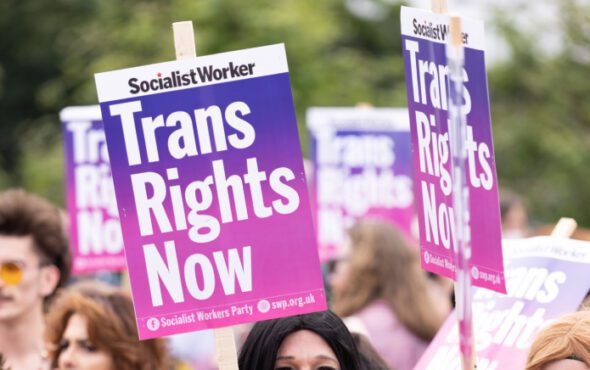
The Scottish Parliament has passed the Gender Recognition Reform Bill in a “significant” step forward for trans rights in the country.
MSPs voted by 86 votes to 39 in favour of allowing transgender people to self-identify, meaning trans people will no longer need to be medically diagnosed with gender dysphoria before obtaining a gender recognition certificate (GRC).
In addition, trans people no longer need to prove that they’ve lived in their gender identity for two years before gaining recognition, while also dropping the minimum age of applying for the certificate from 18 to 16.
Applicants are now required to make a statutory declaration that they have lived in their gender for just three months – six months for all 16 and 17-year-olds – and that they intend to permanently live in their gender.
In the final debate on Thursday (22 December), Shona Robison – Cabinet Secretary for Social Justice, Housing and Local Government – said: “Every party in this chamber except one made a clear commitment to the reforms set out in this Bill at the last Scottish election, and at the one before that it was all parties.
“Trans rights are not in competition with women’s rights, and as so often before, we can improve things for everyone when those discriminated against act as allies, not opponents.”
While Scottish Conservative MSP Rachael Hamilton claimed the bill has “shown this Parliament at its worst”, Labour’s Pam Duncan-Glancy said lawmakers have a “rare” opportunity to “improve lives and directly tackle inequality”.
Duncan-Glancy continued to say that the bill will help “society to accept them [trans people] and to support them to be their best selves, without barriers or additional costs or medicalisation”.
Following the passing of the bill, Robison described 22 December as “an historic day for equality in Scotland with the gender recognition reform bill being approved by parliament and by members of all parties”.
She highlighted how the bill will ‘simplify and improve’ the process for trans people to obtain a GRC certificate, calling the previous requirements “intrusive, medicalised and bureaucratic”.
“The legislation makes no change to the reserved Equality Act 2010 and that principle is enshrined in the bill. As I have made clear, the Scottish government continues to support the provision of single-sex services and the rights of women,” Robison explained.
“The passing of this bill is a significant step forward in creating a more equal Scotland, where trans people feel valued, included and empowered.”
Stonewall said the bill passing is a “victory for trans and all human rights in Scotland”.
Nancy Kelley, Chief Executive at Stonewall, wrote on Twitter: “Absolutely over the moon to see the #GRRBill pass in the Scottish Parliament today. Trans people deserve to be able to live their lives in dignity. This is an important step towards that goal.”



